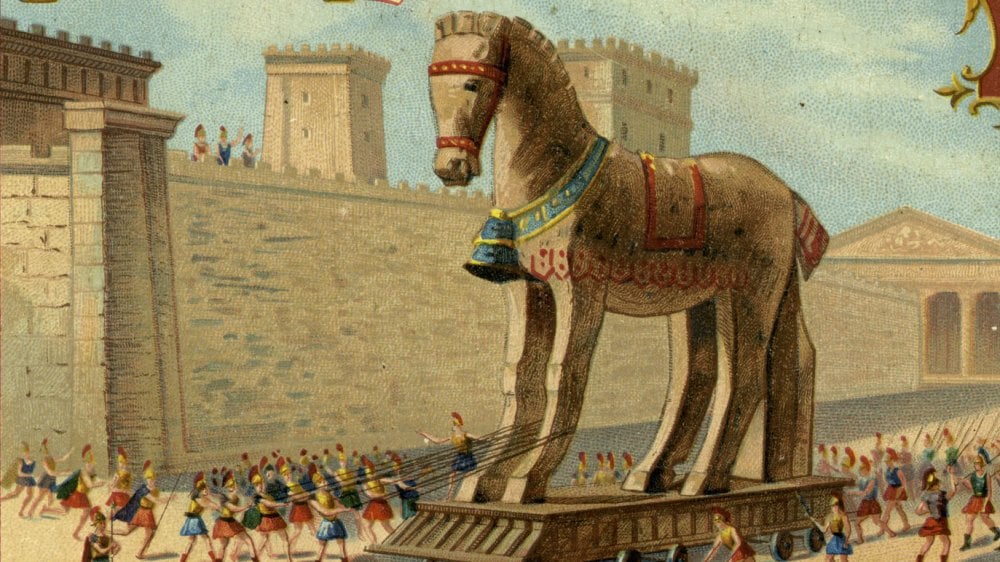Literary masterpieces have been around since the start of the century. Several works from the height of the Greek empire are still ready today. But did you know about the Epic Cycle?
The Epic Cycle is a collection of literature about the heroes of the Trojan War. There are twelve epic poems known to man. The best-known among them are Homer’s Iliad and Odyssey. Unfortunately, these are also the only epics that have survived.
Was There Any Evidence of the Epic Cycle?
While only two epics have survived the test of time, historians have irrefutable evidence of the existence of the entire Epic Cycle.
Herodotus documented Epigoni and Cypria during the mid-5th century. He did not recognize the Homeric authorship and was questioned by his peers at the time. The entire literary work was mentioned as a whole during the 2nd to 4th centuries. Aristoxenus would talk about it and termed it the Trojan Cycle.
The great Aristotle criticizes some of the poetics in some of his work. Thus showing evidence of its existence.
But the most knowledge about the Epic Cycle was seen in a summary known as Venetus A. The preface of the outline had been damaged, but Cypria had been missing. (Source: Livius)
What Titles are Included in the Epic Cycle?
Modern scholars have debated about the existence of the Epic Cycle. But according to the majority, here is what we know. (Source: Livius)
Titanomachy
There is an unknown number of books under this particular volume. But there are eight fragments under this title. Eumelus wrote it of Corinth or Arctinus of Miletus. The epic talks about the culminating victory of Zeus. (Source: Livius)
Oedipus
Cinaethon wrote the second epic in the Cycle. The story talks about the unlucky king of Thebes, who is part of a somewhat scandalous marriage. There are about eleven books with about three fragments. (Source: Livius)
Thebais
Thebais is the third of the Epic Cycle written by Homer. It was also known by the title Seven Against Thebes. It focused on the story of how seven warriors failed to take over the city of Argos. There are about twelve books in the series. (Source: Livius)
Epigoni
Also written by Homer, the epic focuses on the sons of the seven warriors talked about in Thebais. It consists of three fragments and twelve books. (Source: Livius)
Cypria
While it is uncertain who wrote this epic, historians account for the creation under Stasinus of Cyprus, Hegasias of Salamis, and the famous Homer. It is well known for its lengthy excerpts and quotes. It summarizes the events before the occurrence of the Trojan War and describes the prelude to Illiad. (Source: Livius)
Iliad
The Illiad, also written by Homer, may also be one of the well-known of the Epics. It talks about the wrath of Achilles. The book was quite sacred that Alexander the Great slept with a copy under his pillow. (Source: Livius)
Aethiopis
A story about Achilles written by Arctinuc of Miletus: describes him as a perfect warrior, purified, and the son of a demigod. (Source: Livius)
Little Iliad
The book was also known as Ilias Mikra was written by Lesches of Mitylene. It was a diverse piece that spoke about Odysseus and the obstacles he faced before capturing Troy. (Source: Livius)
Sack of Troy
Also known as Ilioupersis was also written by Arctinus of Miletus. It speaks about the plot of the Trojans against the city of Troy. How the Wooden Horse was used and how many people were opposed to it at the start. (Source: Livius)
Returns
As the record shows, the book was written by a Colophonian author who is assumed to be Homer. After the Sack of Troy, the Returns talks about the quarrels between Agamemnon and Menelaus. (Source: Livius)
Odyssey
Also written by the famous Homer, the book starts by talking about the survivors of the Trojan War. Everyone had returned home except for Odysseus, who was living on an isle with Calypso. (Source: Livius)
Telegony
Eugammon wrote the last book of the Epic Cycle of Cyrene. It talks explicitly about what happened after Odysseus returned home. (Source: Livius)
